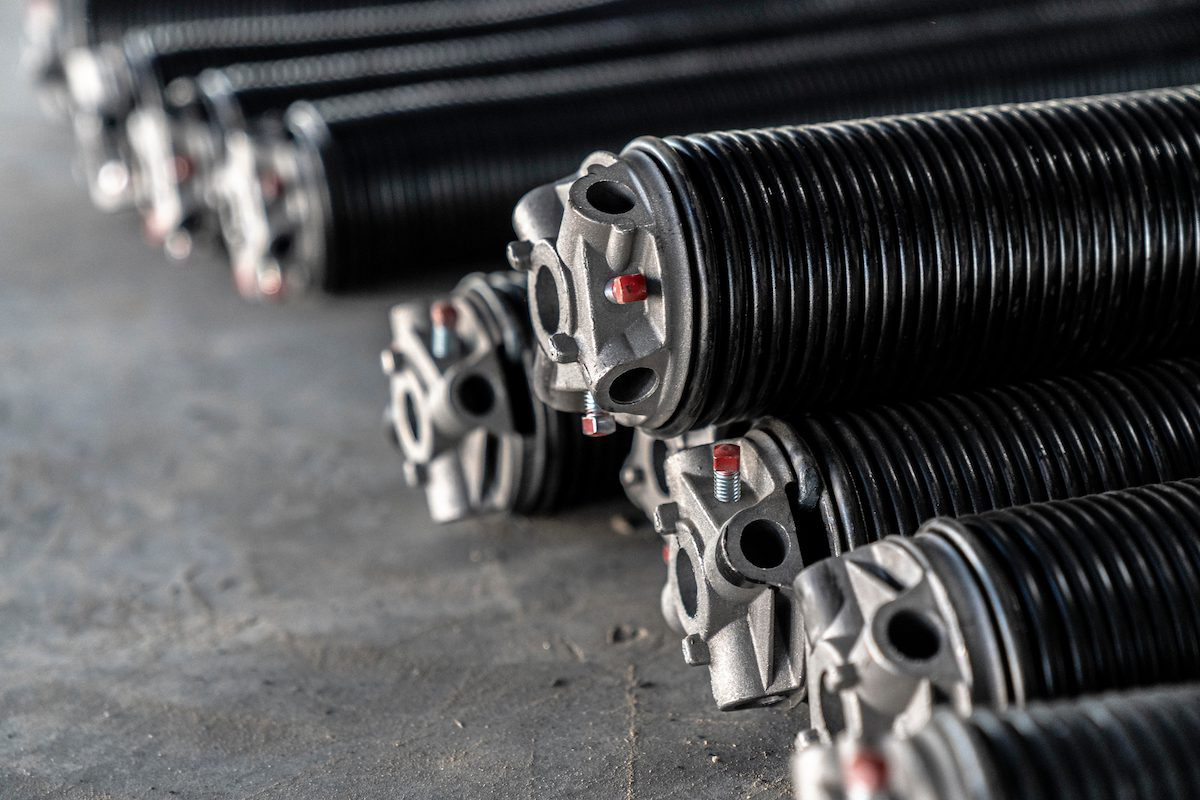A garage door that feels heavy, won’t lift off the ground, or suddenly stops working isn’t just a routine mechanical problem. In most cases, these symptoms point to the failure of one of the most important components in your entire garage system: the spring.
When a garage door spring breaks, it becomes a serious safety issue. Acting quickly—and calling the right experts—is essential.
What a Garage Door Spring Actually Does
Every garage door uses a spring system to counterbalance its weight. Your opener is not designed to lift the full weight of your door alone. The spring does most of the heavy lifting.
Because springs store so much tension, a failure can release energy violently. This is why Glicks strongly recommends contacting a trained technician at 800-262-3268 as soon as spring issues appear.
Why a Broken Spring Is So Dangerous
Manufacturers highlight several risks that occur when springs fail:
1. Stored Energy
Garage door torsion springs hold intense torque. When they snap, the release can be dangerous.
Source: Haas Door
https://haasdoor.com/residential-garage-doors
If you hear a loud “bang,” or see a gap in the spring, stop using the door and call Glicks right away at 800-262-3268.
2. Sudden Door Drop
A broken spring removes the counterbalance. The door can fall quickly and unpredictably.
3. Damage to Your Opener
Genie notes that openers are not built to lift a full-weight, unbalanced door. Running the opener can burn out the motor.
Source: Genie Company
https://www.geniecompany.com
If your opener strains or the door won’t lift, contact Glicks technicians immediately at 800-262-3268.
4. Stress on Other Hardware
When the spring fails, cables, rollers, drums, and hinges can also take damage. This often leads to more expensive repairs if not addressed quickly.
Common Signs Your Garage Door Spring Is Broken
You might be dealing with a spring issue if:
- The door is suddenly extremely heavy
- The opener runs but the door won’t move
- You hear a loud snap or bang
- The door lifts unevenly or only slightly off the ground
- There’s a visible gap between spring coils
- Springs appear stretched, rusted, or worn
If you notice any of these symptoms, do not try to lift the door manually. Instead, call Glicks at 800-262-3268 for safe, professional service.
What To Do (and Not Do) Next
Do:
- Call Glicks professional garage door team at 800-262-3268 for a full spring inspection and replacement
- Keep the door closed and secured until a technician arrives
- Consider spring upgrades (higher cycle ratings) if your door sees heavy daily use
- Schedule routine maintenance to prevent sudden failures
Don’t:
- Don’t try lifting the door if a spring is broken
- Don’t continue running the opener—it may cause additional damage
- Don’t attempt to replace torsion springs yourself
Genie warns that torsion systems require specialized tools and training
https://support.geniecompany.com
If you’re ever unsure, Glicks is ready to help at 800-262-3268.
Choosing the Right Door and Hardware Matters
Starting with a high-quality, properly balanced garage door system is the best way to prevent spring problems before they happen.
Glick’s offers durable, high-performance residential garage doors backed by certified installation experts.
👉 Explore your options: https://glicks.com/products/residential-garage-doors/
👉 Or speak directly with a Glicks specialist at 800-262-3268
Manufacturer-Approved Resources
- Haas Door – Residential Garage Door Construction & Safety
https://haasdoor.com/residential-garage-doors - Genie Company – Openers, Hardware, & Safety Guidance
https://www.geniecompany.com - Clopay – Door System Construction & Product Education
https://www.clopaydoor.com/garage-doors - Wayne Dalton – Door System & Spring Information
https://www.wayne-dalton.com
Final Thoughts
A broken garage door spring is one of the most dangerous failures a homeowner can encounter in their garage system. If your door suddenly feels heavy, won’t open, or sounds unusual, do not attempt to operate it.
Call Glicks at 800-262-3268 for fast, safe, and professional service you can trust.
When you’re ready to upgrade to a reliable, long-lasting garage door system, start here:
👉 https://glicks.com/products/residential-garage-doors/


